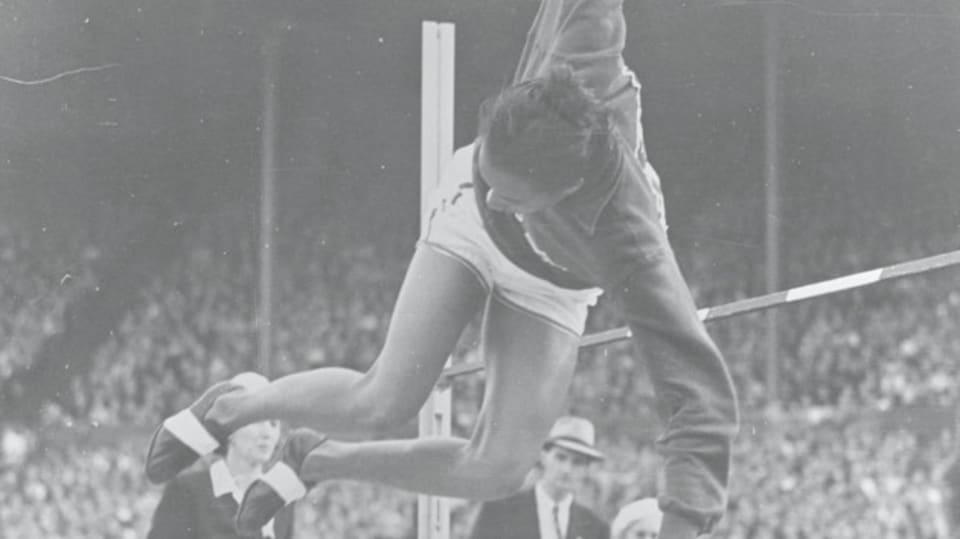
If Audrey Patterson had lit the path for black athletes in 1948, Alice Coachman followed it gloriously. The day after Patterson's historic Bronze medal, Alice Coachman became the first black woman from any country to win a gold medal in track and field.
Coachman had come from a poor background in Georgia with little parental support for her sporting ambitions, while segregation in America had also restricted her access to top-quality training facilities. Undeterred, she relied on the support of others to develop her strength and technique. She knew she wanted to compete and so made a high jump crossbar out of rope and sticks, while she developed her stamina by running barefoot on hard dusty roads.
Her sport was High Jump but she showed an aptitude for many events. She grew up to take national titles in the 50m and 100m as well as the 400m relay and was also a tremendous basketball player. But in the high jump she was truly outstanding, taking the American national title ten years in a row in the run-up to 1948.
She was initially reluctant to compete at the Olympic Games, but eventually agreed to attend the trials and promptly destroyed the existing national high jump record, despite a back injury.
In London, and in front of 83,000 spectators, she rose to the occasion. Both she and Britain's Dorothy Tyler cleared the bar at 5ft 6ins, but as Coachman had achieved it with her first jump, she was declared the winner. Her gold medal was not just the first to be won by a black woman – she was also the only American woman to win a gold medal at the 1948 Games. She received her medal from the King and then returned home a hero.
She was received by President Truman and her city of Albany held an “Alice Coachman Day”. A 175-mile motorcade was held in her honour, and she was cheered by black and white supporters alike. Four years later, she became the first black female athlete to endorse an international consumer product when she was signed up to promote Coca-Cola.
